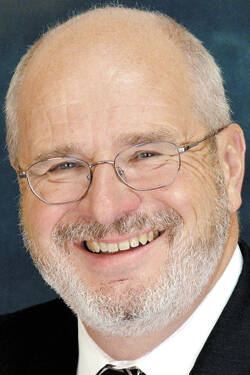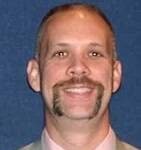Former U.S. Rep. Lee Hamilton, D-Indiana, once told me a story.
It was about the late U.S. Sen. Richard Lugar, R-Indiana, and the way Congress once worked.
Hamilton said he and Lugar had been friends for decades. The two got to know each other when Lugar was at the start of his political career, at the time he was launching his successful run to become mayor of Indianapolis.
Hamilton had been elected to the U.S. House of Representatives in 1964. Lugar became a candidate in the mayor’s race in 1967.
Hamilton told me Lugar sought him out for advice.
“We talked about the things practical politicians talk about,” Hamilton said — how to get things done, how to run campaigns, how to count votes so one wasn’t surprised when a measure came up for a tally.
The two stayed in touch through the years, a task made easier when Lugar was elected to the U.S. Senate in 1976.
They came from different political parties and disagreed on many issues, some of them important ones. Those differences, though, did not overwhelm their friendship, the regard they had for each other.
That’s because in key ways they were alike.
Neither Lugar nor Hamilton thought disagreeing with someone provided an excuse for showing disrespect to that person. Neither man thought he had a monopoly on the commodities of truth and wisdom.
Both developed reputations as straight shooters, honest brokers who could be trusted to work through the thorniest, most painful differences of opinion or public policy.
For that reason, Hamilton told me, their colleagues in Congress often would delegate them to work things out when the two political parties arrived at an impasse.
“Dick’s Republican colleagues respected his judgment and trusted him. And my colleagues in the Democratic Party had respect for me,” Hamilton said.
The way the two men worked through things wasn’t innovative.
They sat down together, and they talked. They didn’t impugn each other’s motives or integrity. They didn’t accuse each other of not loving their country because they or their political parties didn’t see eye-to-eye on a particular issue.
This is the most important part: They also listened to each other.
By doing so, they were able to seek out areas of agreement, small patches of common ground upon which they could build resolutions to the conflicts that divided their colleagues and the country they served.
Hamilton said the whole thing worked because their colleagues trusted and respected them.
That’s true, but it doesn’t go far enough.
It also worked because they trusted and respected each other.
We now often forget how important those two qualities — trust and respect — are, particularly in making the machinery of government in a representative democracy function.
Lugar’s commitments, former Senate Majority Leader Tom Daschle, D-South Dakota, once told me, were “good as gold.”
“Once he gave his word, you could take it to the bank,” Daschle said.
Hamilton also understood the value of the currency of trust. That’s why presidents from both parties trusted him to serve as an informal adviser on foreign policy questions and other national security issues.
Respect is the grease that allows the wheels of government to turn by minimizing the friction honest differences of perspective generates.
One of the legislative branch’s most important functions is to serve as the arena in which such differences are balanced — and, if possible, resolved.
Performing that duty was a task at which Dick Lugar and Lee Hamilton excelled.
The Congress we have now seems to lurch from one near-catastrophe to another. The debt-ceiling showdown is but the latest example.
Lee Hamilton left Congress in 1999, in part because he was weary of the growing partisan divides in Washington. Dick Lugar lost a primary in 2012. He was punished by his own party for committing the sin of listening to and being willing to work with people with whom he disagreed.
Our government now struggles, and we chase people from service in Congress who are willing to work through differences.
I wonder if there’s any connection between those two things.
John Krull is director of Franklin College’s Pulliam School of Journalism and publisher of TheStatehouseFile.com, a news website powered by Franklin College journalism students, where this commentary originally appeared. The opinions expressed by the author do not reflect the views of Franklin College. Send comments to [email protected].





